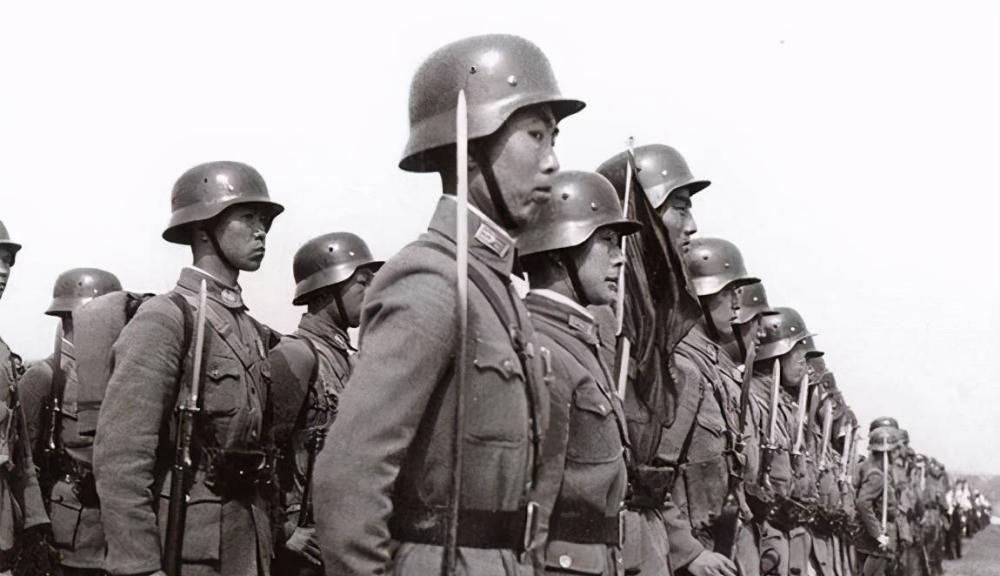The Battle of Menglianggu was a very important battle during the Liberation War, in which the reorganized 74th Division, which claimed to be one of the five main forces of the Nationalist Army, was completely annihilated by the East China Field Army, and the division commander, Lieutenant General Zhang Lingfu, was killed. The reorganized 74th Division, also known as the 74th Army of the National Revolutionary Army during the War of Resistance Against Japanese Aggression, was feared even by the Japanese army during the War of Resistance Against Japanese Aggression, but in the battle with Huaye in May 1947, it lasted only three days before being completely annihilated by Huaye, which shows the strength of Huaye's combat effectiveness.

The collapse of the reorganized 74th Division caused a great shock in the Kuomintang army, and although many generals were verbally unconvinced by Zhang Lingfu, they still had a good idea of the strength of this unit, so in the battle of this battle, they were very careful, and no unit dared to go deep into the hinterland of the PLA base area alone. However, there was one unit that was not like this, and was not afraid of the East China Field Army, which was the reorganized 11th Division led by Hu Lian. Like Zhang Lingfu, Hu Lian was in the Huangpu IV period, but Hu Lian was more cunning than Zhang Lingfu in military command. The reorganized 111th Division was the 18th Army of the National Revolutionary Army during the War of Resistance Against Japanese Aggression, which was also one of the five main forces, and was also a traditional ace unit of the Kuomintang Army, and also made great achievements during the War of Resistance.
After the liberation war began, the 18th Army was reorganized into the 11th Division, but this unit, like the reorganized 74th Division, was still the size of the army, with more than 30,000 people in the division and all American weapons and equipment, and its combat effectiveness could not be underestimated. In 1946, the Central Plains Field Army had assembled three columns to destroy this unit in the Zhangfengji area, but it was blocked for several days by a regiment of the integrated 11th Division, and finally Nakano returned without success and suffered heavy losses.
Not long after the entire army of the reorganized 74th Division was overthrown, Su Yu led four infantry columns of the East China Field Army, three regiments of the Bohai Naval Region, and a special column with a total of five columns to directly attack Nanma, where the reorganized 11th Division was located. Hu Lian was very cautious, and he always paid attention to strengthening the connection with the reorganized 25th Division and the 64th Division. Before the battle had even begun, Hu Lian commanded three brigades to construct the main positions with Nanma, Gaozhuang, and Beiliuzhuang as the core, and stepped up the construction of fortifications.
The reorganized 11th Division was good at fighting blocking battles, whether it was the Battle of Luodian in 1937 or the Battle of Shipai in 1943, this unit had achieved good results. In this campaign, the 18th Army built thousands of bunkers in a very short period of time, demolished the surrounding houses, trees, used a large amount of wood to build fortifications, and pulled up several barbed wire fences in front of the fortifications. Hu Lian also drove away all the people in the surrounding villages, and all the crops and trees were torn down to clear the shooting line.
On July 17, 1947, under the command of Su Yu, the Ninth Column, the Sixth Column, and the Second Column of the East China Field Army launched an attack on the reorganized 11th Division stationed in Nanma in multiple ways, and the Seventh Column and three regiments of the Bohai Naval Region searched from east to west from the north of Donglidian to cut off the contact between Hu Lian's troops and the reorganized 25th Division and the reorganized 64th Division, and the special column sent heavy artillery units to take cover. This operation was even more difficult than fighting the reorganized 74th Division, which could not hold its position and used the superiority of the firepower of us armaments and equipment to resist, causing a lot of casualties to the Huaye attacking troops. On the evening of the 18th, the outer positions of Nanma were cleared, and Huaye launched an attack on the main position, but the main force of the reorganized 11th Division was shrunk in the bunker and did not come out, which caused great difficulty for Huaye to attack the stronghold.
On the 19th, Chiang Kai-shek ordered the Air Force to send 12 aircraft to bomb our offensive forces. At the critical moment of the fierce battle between the two sides, suddenly heavy rain fell, the roads were muddy, the logistical supply of the Huaye offensive troops became extremely difficult, and the food and ammunition could not be delivered at all. At that time, not long after the reorganized 74th Division was completely annihilated, Chiang Kai-shek punished many generals who could not be saved, so in the Battle of Nanma, many reinforcements were trying their best to reinforce, and the reorganized 25th Division led by Huang Baitao took the lead in breaking through the Huaye blocking force. In the end, Hua Ye had to withdraw from his position after paying a huge number of casualties.